Renting a car is a great way to discover Morocco independently. With your own vehicle, you can reach remote places that are relatively poorly connected. This article will tell you everything you need to know about renting a car in Morocco.
There’s no doubt having a car gives you far more flexibility and freedom when exploring Morocco than if you went by bus or Grand Taxi. Many places of interest such as the Valley of Roses or the Ouzoud Falls are often difficult to reach by public transport. Morocco has many local and international car rental companies in many cities. Renting a rental car works very much like it does in Europe. Depending on the rental period, season, insurance and vehicle class, it costs around 10-90 Euros per day.
Visiting the desert in a hired car in Morocco
Contents
Should you rent a car locally or book online in advance?
There are many Moroccan car rental companies such as Medloc Maroc and, if you’ve time and good negotiating skills, you can get slightly cheaper prices by turning up in person than by booking with the renowned international car hire companies.
However, local car hire companies often can’t remove the policy excess amount that you need to pay. Or, if they do, it can work out relatively expensive. In addition, their rental cars are often in a slightly worse condition than those from the major car hire companies. However, they’re cheaper. The big car rental companies are more likely to have several branches in Morocco. Therefore, they can offer one-way rentals at no extra cost.
Offer from Rental Cars (Search results for 7-day Car Hire from Marrakech)
Portals such as Rental Cars compare the prices of numerous providers with each other and clearly display the costs and hire terms in the search results. This is a very handy way to get an overview. Under what conditions are rental cars offered? How about extras, for example, sat navs?
What do you have to look out for when renting a car in Morocco?
If you’d like to book a rental car with one of the major providers before you travel, you should carefully study the conditions before making your choice and then be able to answer the following questions:
- Is there a limit in terms of the number of kilometres you can drive (kilometre illimité) or can you drive for unlimited kilometres without additional costs?
- Are local taxes (20%) already included in the price?
- What about the insurance (CDW = collision damage waiver, PAI = personal accident insurance) and the excess amount in the event of damage?
- If you’re picking up your vehicle at the airport, has airport tax already been paid?
- Are certain car parts excluded from the partial cover, for example, the tyres?
- What’s the fuel tank situation: is it fully refuelled or not?
- How much is it to add a second driver or is this already included in the price?
In the Atlas Mountains on the way to Ouarzazate
Don’t cut costs in the wrong areas
Don’t try to save on costs in the wrong areas, as costs aren’t proportionate to the risk: If you’re involved in an accident that necessitates a police report and an unregistered driver was behind the wheel, you’ll lose any claim for damages.
When picking up the car on site, you should take a close look at it and make sure any bumps and scratches are recorded. Not only should you check that the jack, wheel nut spanner and spare wheel are provided and working, but also that the tyres are at the right pressure. Finally, don’t forget to discuss the timing and procedures for returning the vehicle.
You have to be at least 21 years old to hire a car in Morocco. Most international car hire companies set the minimum age at 25 years. In addition, you need to have had your driving license for at least a year.
Car rental, deposit and excess
If you agree on the excess in advance, you’ll be less worried if, during the trip, a few stones fly up and hit the windscreen or the city traffic is a little tighter than you imagined.
However, different lenders have very different conditions. Statutory insurance in Morocco is only for partial cover. The benefits vary greatly depending on the contract. Usually, there’s basic cover against damage and theft. However, certain vehicle parts such as glass, the underside of the vehicle and the tyres may be partially excluded from the insurance.
Existing bumps and paint scratches are usually recorded in the contract during the handover. The excess is deducted for repairing major damage. With a few exceptions, the excess is usually paid in cash or by credit card when the vehicle is handed over. Most international lenders require a credit card to pre-authorise the agreed excess until the car is returned without damage.
Not allowed: A small car on a track near the “Valley of Roses”
“No excess” means that international car hire companies usually don’t require you to pay anything in case of damage. However, this often means taking out additional insurance. When you turn up, the car hire companies will often ask for a deposit, which is retained in the event of damage and will be refunded later in Europe.
So, you rent the car without an excess, even if you have to pay a deposit when you turn up which, depending on the provider and vehicle value, can be between 500 and 1000 Euros.
Tips: Traveling in a rental car in Morocco
- Avoid night driving and only go out in daylight
- Always comply with the speed limits and traffic rules
- Driving on tracks is strictly prohibited by most hirers
- After heavy rain, some minor roads may be impassable
- Car garages can be recognised by the sign “auto électricité”
- Get a road map, for example, the Michelin 472
- Research prices with booking portals like Rental Cars to get cheap deals
- Stick to the slower driving speeds in Morocco, the results of the Michelin Route Planner are more realistic than those of Google Maps
Discover Morocco independently with a rental car!
(photos: Travel Guide Marrakech)

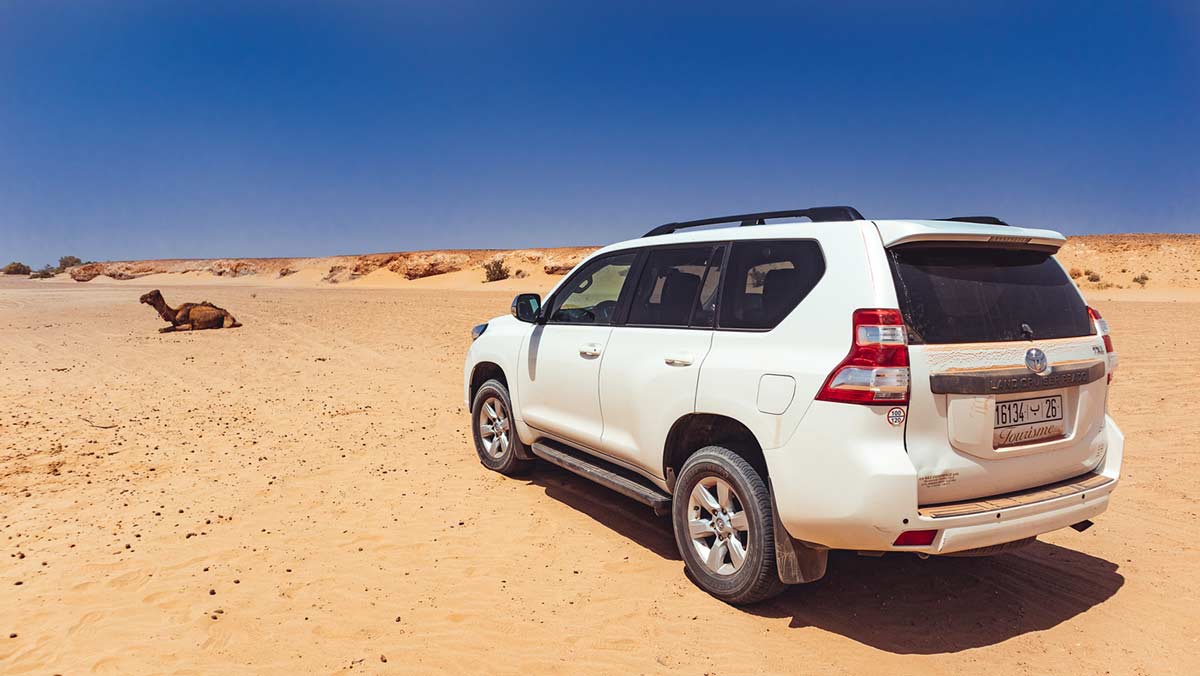
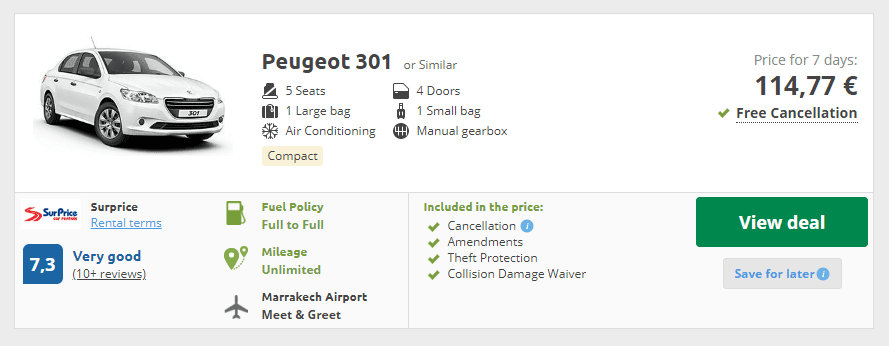
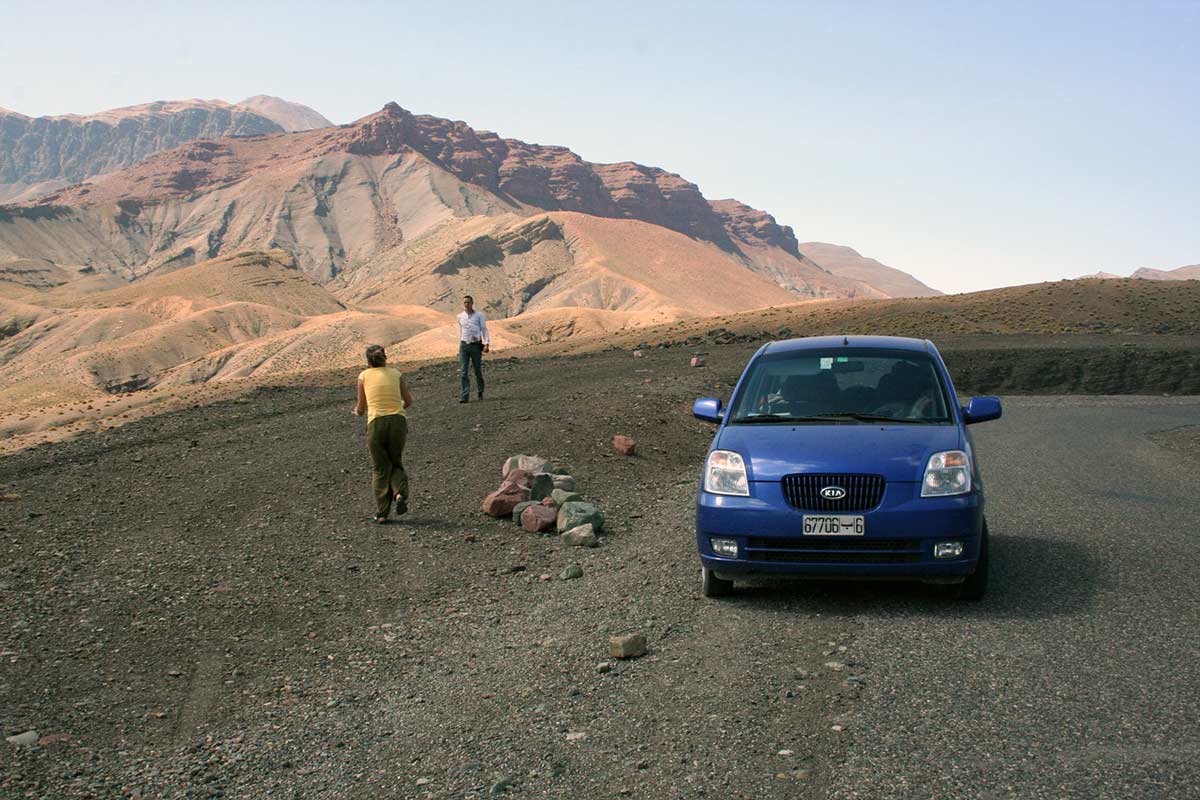
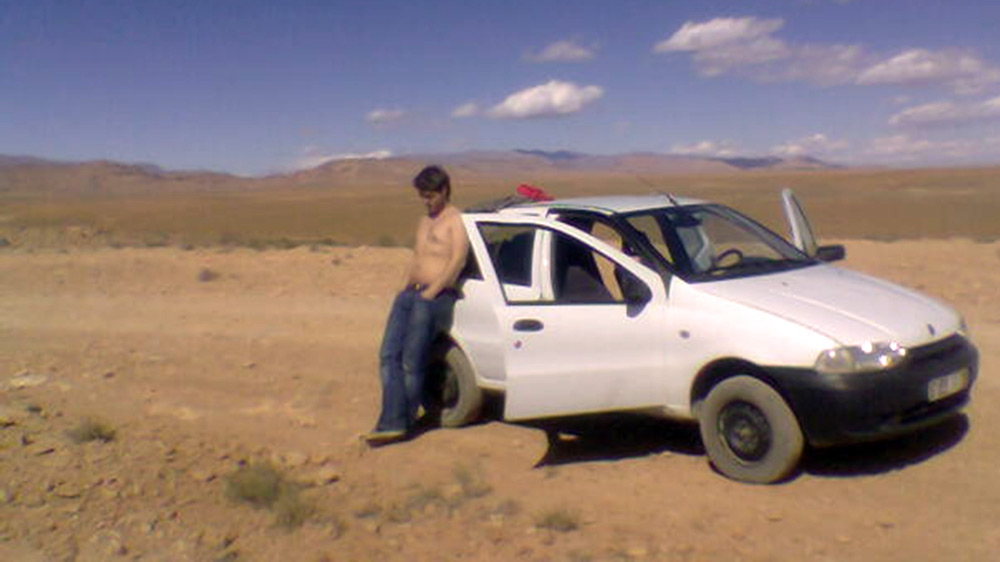
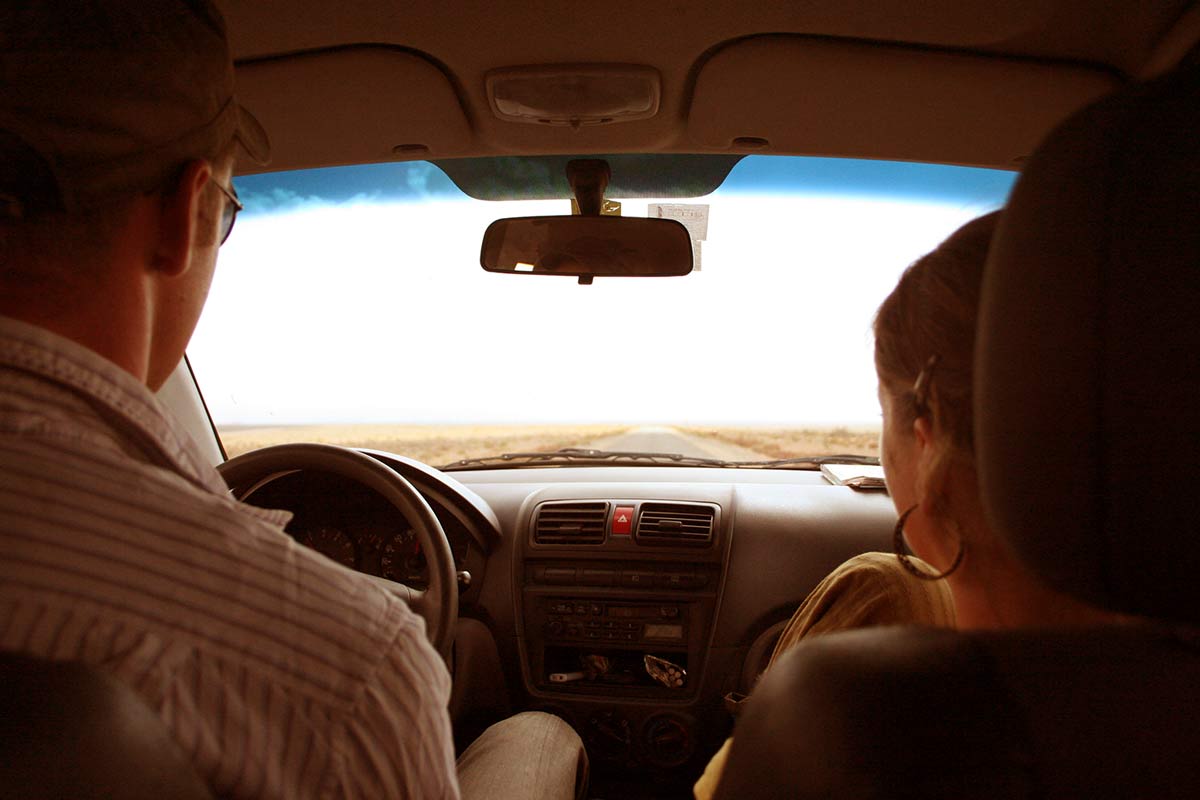
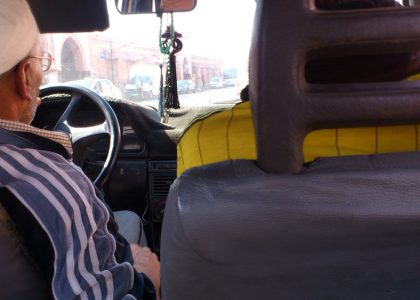
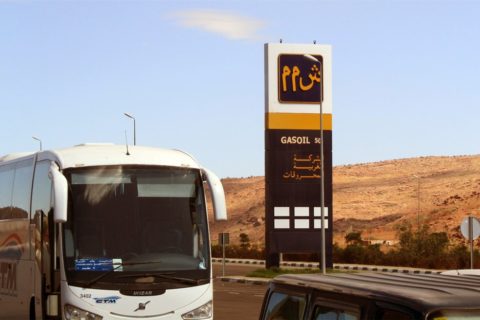
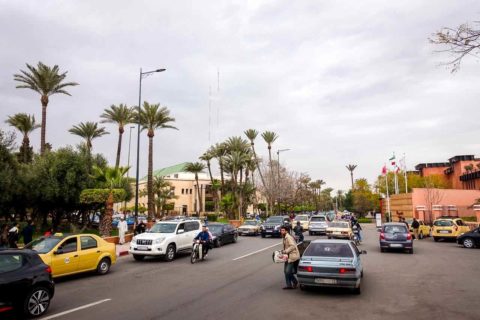
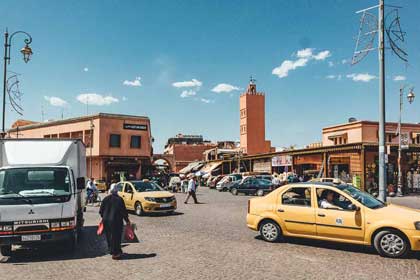
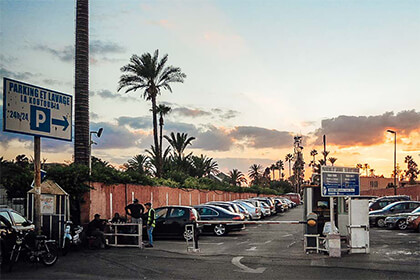
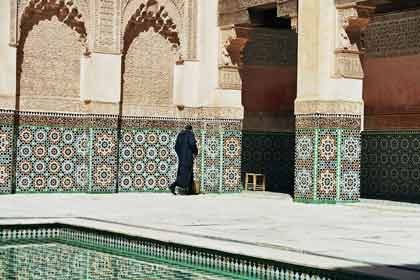
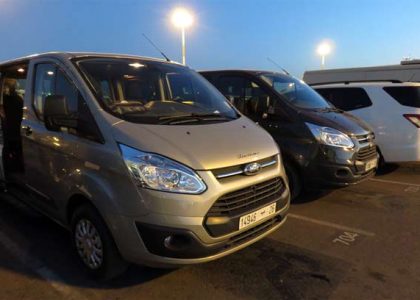
muchas gracias por el gran post sobre alquilar coches en marruecos ,
Gracias otra vz me ha ayudado tanto